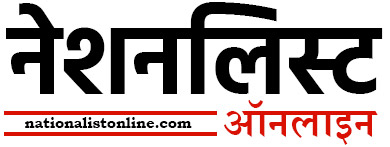VAIBHAV CHADHA
On August 11, the Rajya Sabha passed the Maternity Benefit (Amendment) Bill, 2016, by voice vote. The Bill was moved for consideration by Union Minister for Labour Bandaru Dattatreya. The Bill amends the Maternity Benefit Act, 1961, and will benefit 18 lakh women out of the total 2.8 crore organised workforce in the country.
The amendments in the act increase the maximum period of maternity leave, in case of women who have less than two surviving children, from the existing 12 weeks to 26 weeks in order to enable the mother to take care of the new-born during the formative stage of the child. In case of women who have more than two children, the existing period of 12 weeks maternity benefit shall continue. Every establishment will now have to intimate in writing and electronically, the benefits available to every woman under the Maternity Benefit Act at the time of her initial appointment in the establishment.
The Bill further provides that, if the nature of work allocated to the woman permits her to work from home, the employer may allow that woman to work from home. This provision has been added to facilitate “work from home” to a mother with mutual consent of her employer. Amendments to the Maternity Benefit Act, 1961, also make it obligatory for establishment having fifty or more employees to have either individually or as a shared common facility the facility of crèche within such distance as may be prescribed by rules. Also women are to be allowed four visits to the crèche daily, including the interval for rest allowed to her.
The Maternity Protection Convention, 2000 (Convention No. 183) of the International Labour Organisation provides for 14 weeks of maternity benefit to women. The World Health Organisation recommends exclusive breast-feeding up to six months of the child’s age and continued breast-feeding with supportive foods up to two years of age or beyond. The 44th, 45th and 46th Indian Labour Conference had proposed enhancement of Maternity Benefits to 24 weeks and the Ministry of Women & Child Development had also proposed to enhance Maternity Benefit to eight months. But after consulting all stake-holders, the maternity benefit of 26 weeks was approved by the Union Cabinet. The Modi Government’s decision will take India a step towards international norms followed by organisations across the globe in the areas of maternity benefits.

Maneka Gandhi, Union Women & Child Development Minister, while participating in the debate on the Bill, said, “Maternity leave is not a holiday, but a very stressful time for the woman. This was the Bill that most women were eagerly looking forward to.” Under the 1961 Act, the maternity benefit could not be availed before six weeks from the date of expected delivery, but now the new Bill seeks to change this to eight weeks, and in case of women who have two or more children, the maternity benefit cannot be availed before six weeks from the expected date of delivery. A provision, granting 12 weeks of maternity leave to “commissioning mother” (in case of surrogate child) and “adopting mother” (in case of adoption) from the date of child is handed over, has been inserted in the new Bill. The 12-week maternity leave will be determined from the date the child is handed over to the commissioning or adopting mother.
The Bill further provides that, if the nature of work allocated to the woman permits her to work from home, the employer may allow that woman to work from home. This provision has been added to facilitate “work from home” to a mother with mutual consent of her employer. Amendments to the Maternity Benefit Act, 1961, also make it obligatory for establishment having fifty or more employees to have either individually or as a shared common facility the facility of crèche within such distance as may be prescribed by rules. Also women are to be allowed four visits to the crèche daily, including the interval for rest allowed to her.
According to a report by McKinsey Global Institute (MGI), women in India represent only 24 per cent of the paid labour force, while the global average is 40per cent. The recent amendments in Maternity Benefit Act, 1961, will encourage women to participate on par with men in the labour forceThe number will eventually increase as more benefits have been given to mothers during the formative stage of their child. Besides, they shall have more time to take care of their own health.
(The writer is research associate at Dr Syama Prasad Mookerjee Research Foundation, New Delhi)
